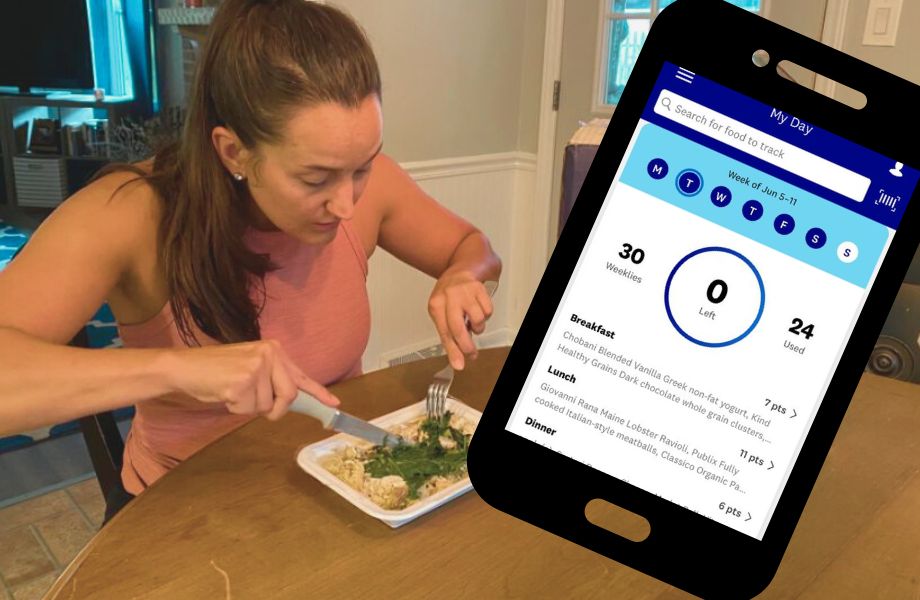We test and review fitness products based on an independent, multi-point methodology. If you use our links to purchase something, we may earn a commission. Read our disclosures.
A nutrition app is a great way to keep a virtual food diary, ensuring you’re consuming the right balance of calories, macronutrients, and micronutrients to support your health and fitness goals. If you’re following one of the best weight loss programs, food tracking is often an important part of your success, and apps can help. However, with so many available options, choosing the right app can feel overwhelming, and testing them all yourself can be very time-consuming.
To help you find the perfect app, our team has put together a list of the eight best calorie counter apps currently available. Our testers have extensively used each of these apps, a team that includes certified nutrition coaches, certified personal trainers, registered dietitians, and more. Many of us have spent years using various apps, and we understand the most important features to look for.
Without further ado, here are the best calorie-counting apps to help you reach any fitness goals you may have.
Medical disclaimer: This article is intended for educational and informational purposes only. It is not intended as a substitute for medical advice. For health advice, contact a licensed healthcare provider. GGR also recommends choosing a product that has been third-party tested for quality.
The 8 Best Calorie Counter Apps
- Best Overall Calorie Counter App: Cronometer
- Best Free Calorie Counter App: Lose It!
- Best Calorie Counter App With Barcode Scanner: MacroFactor
- Best Calorie Counter App for Weight Loss: FatSecret
- Best Calorie Counter App for Muscle Gain: MyFitnessPal
- Best Calorie Counter App With Recipes: WeightWatchers
- Best Calorie Counter App for Intermittent Fasting: Lifesum
- Best Calorie Counter App for Keto: Carb Manager
Best Overall Calorie Counter App: Cronometer
Good for: People who want detailed data tracking
Best Overall
Cronometer
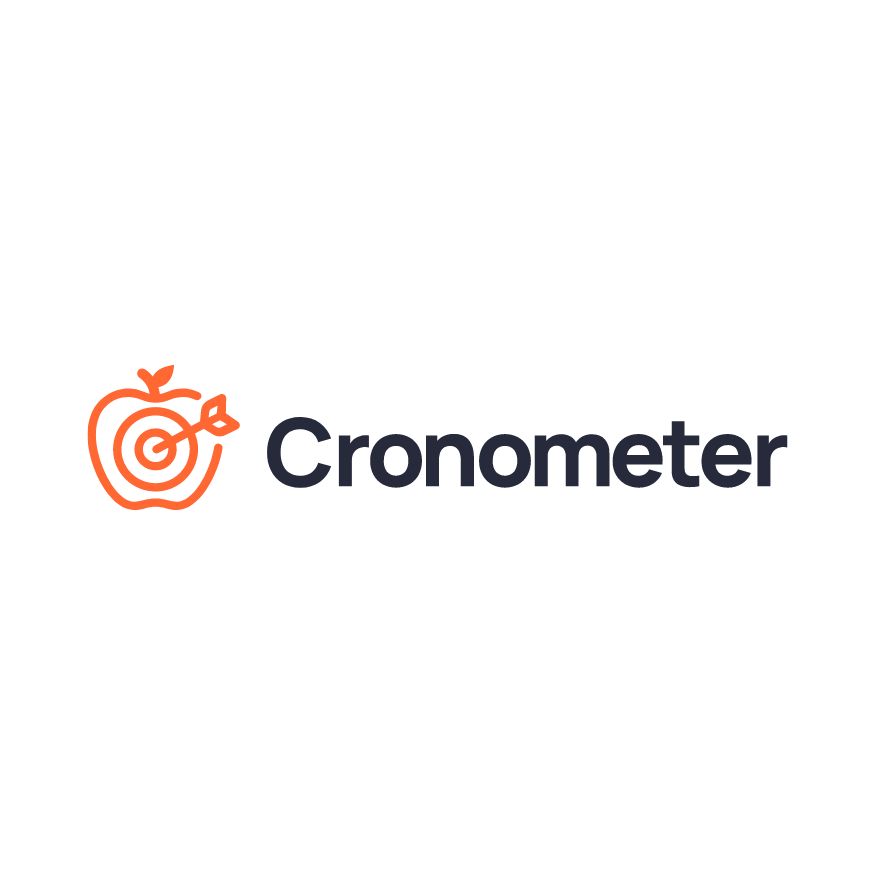
Product Highlights
- Nutrition tracker that tracks macros, micronutrients, exercise, and more
- Free and ad-free Gold version with fasting tracking and custom reports and charts
- Monthly or annual payments for Cronometer Gold
- Access to community through social media and forum for questions and answers
- Can sync with compatible fitness trackers
Pros & Cons
Pros
- Large community
- Monthly subscription choice
- Track up to 84 nutrients
- Can sync with compatible fitness trackers
Cons
- Free version has ads
- Pricier subscription
- Number of things to track can be overwhelming
Bottom Line
Cronometer is a robust nutrition tracker, allowing you to track up to 84 different nutrients in your diet. The app can sync up to fitness trackers, which will then input data from exercise into Cronometer. The app is able to help log and track various diets and eating plans, from Keto and Vegan to dietitian-prescribed plans. There is both a free and Gold version, which allows for further tracking and customization in your plans.
Cronometer is one of the most popular calorie-counting apps, and for good reason. While many apps simply track calories and macronutrients, Cronometer can provide an extremely detailed look at your micronutrient intake as well, providing a detailed look at the essential vitamins and minerals we should be consuming.
GGR Senior Editor Erin Chancer, CPT, CNC, tested Cronometer, and found this to be a little overwhelming, as there’s so much information to monitor, and gave Cronometer a 4-out-of-5-star rating for ease of use.
In addition to a detailed food log, you can also use Cronometer to track your body measurements, blood pressure, mood, sleep, and more. However, Erin also pointed out that tracking some of these additional metrics can be a little confusing. She said, “Anything you choose to track can then be added to your daily diary. The tracking is very generic, so you may have to assign your own scale (1-5) to certain items. For example, I tried to track mood and could only enter numeric values.”
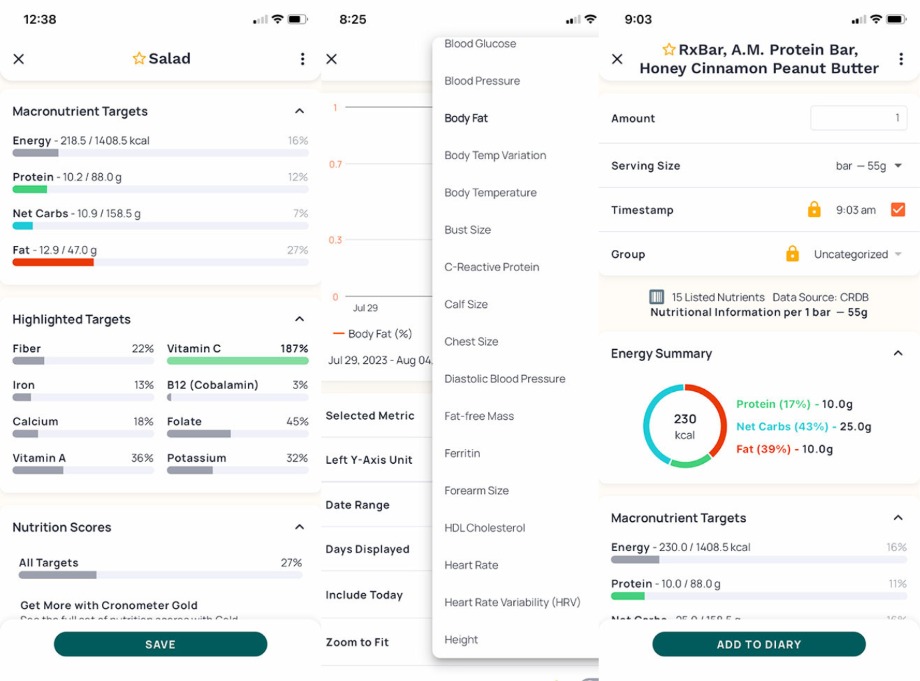
As a nutrition coach, one feature I particularly love about Cronometer is the verified food database. With other apps that have a public database, it’s not uncommon to type in a food and find 50+ entries with a wide range of nutritional information, while Cronometer carefully checks and approves every public food database entry (you can still create your own custom foods).
Finally, there’s a limited free version you can use to track your food, but the paid plan is relatively affordable at $8.99 per month or $49.99 per year and unlocks advanced features, like tracking intermittent fasting.
If you’re looking for a highly accurate food database and robust data tracking, Cronometer is our pick for the best overall calorie-counting app.
| Cost | Free option; Cronometer Gold is $8.99/month or $49.99/year |
| Free trial | Yes |
| Features | Barcode scanner, calorie tracking, fasting tracking, integration with fitness trackers |
| Available on | iOS, Android |
Best Free Calorie Counter App: Lose It!
Good for: Those looking for a free nutrition app
Best Free App
Lose It
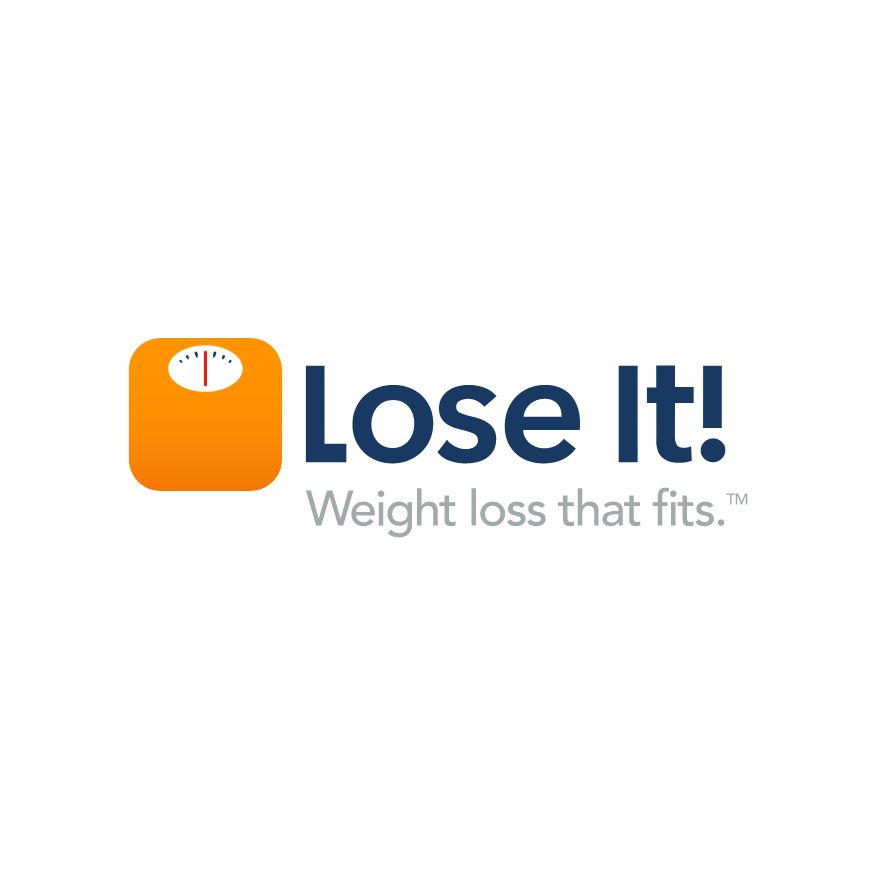
Product Highlights
- Calorie tracking app made with weight loss in mind
- Over 40 million users
- Includes personalized weight loss plan, smart camera, and community support
- Premium version has advanced tracking and sync with devices
- Lifetime membership also available
Pros & Cons
Pros
- Large community
- Large food database
- Barcode scanner
- Personalized weight loss plan
Cons
- Some users complain of minor bugs
- Lots of ads in free version
Bottom Line
Lose It! is an app focused on weight loss through counting calories and tracking food. It offers personalized weight loss plans with advanced tracking through a premium subscription. With a large database and barcode scanner, tracking foods is easy.
If you’re looking for a calorie counter app with a fantastic user experience, clean interface, and best of all, a free plan that includes nearly all of the important features, Lose It! is a great choice.
Lose It! is more than just a food logger, as it aims to educate users about food choices and provide education to improve your health and wellness. When you sign up, you’ll begin by taking a thorough quiz that helps the app establish appropriate food goals. The quiz asks about your body stats, goals, and exercise levels, and even allows you to customize the plan by selecting higher calorie days in the week if you want to enjoy more food on specific days.
GGR Performance Editor Anthony O’Reilly, CPT, CNC, was very impressed with this onboarding feature, saying, “I’ll once again stress just how thorough the opening quiz was—I almost got annoyed at how many questions they were asking. It’s great to see this level of commitment in a fitness app.”
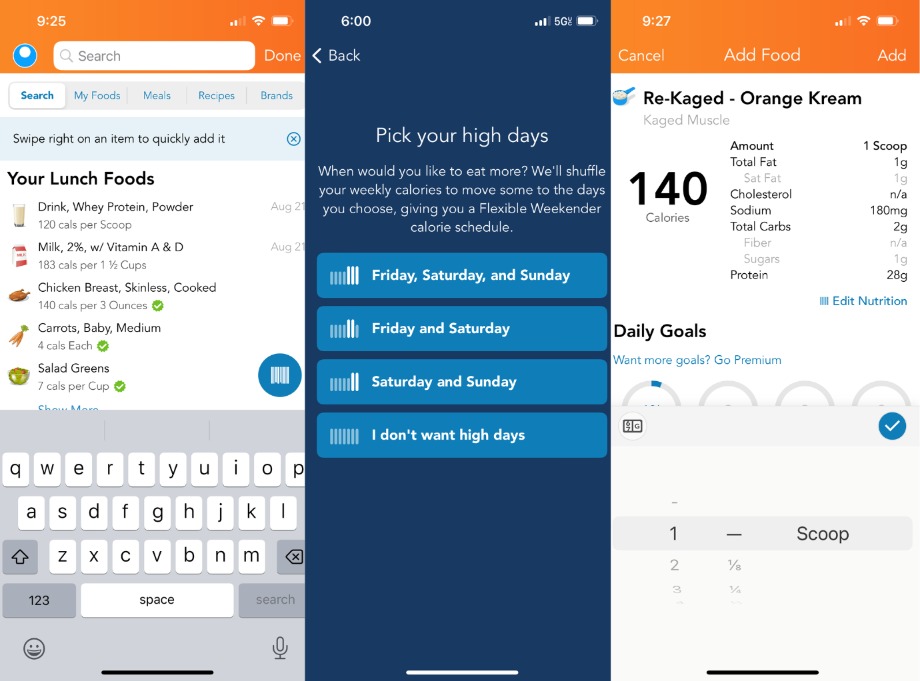
While users can receive free calorie targets and track their food, the ability to see custom macro targets as well is part of the premium version, so this truly is a free calorie counter app, not a free macro tracking app.
The barcode scanner and flexible high-calorie days are also part of the premium plan, unfortunately, but if you don’t need these features, the free version is still very simple and easy to use with a pleasant interface.
Anthony rated the ease of use a 5 out of 5, saying, “A very easy-to-use nutrition app. Sort of reminds me of MyFitnessPal before it started charging for every feature on the app.”
If you’re looking for premium features or the ability to track your macros, you’ll need to pay the premium fee, which costs $39.99 per year, though discounts may be available. However, if you simply need a free app that’s enjoyable to use and allows you to record your daily calories, Lose It! is worth a try.
| Cost | Free; Premium plan is $39.99 per year |
| Free trial | 2 weeks |
| Features | Nutrition guidance, calorie counter, fitness tracker integration |
| Available on | iOS, Android |
Best Calorie Counter App With Barcode Scanner: MacroFactor
Good for: Anyone who wants a barcode scanner and AI coaching
Best App With Barcode Scanner
MacroFactor
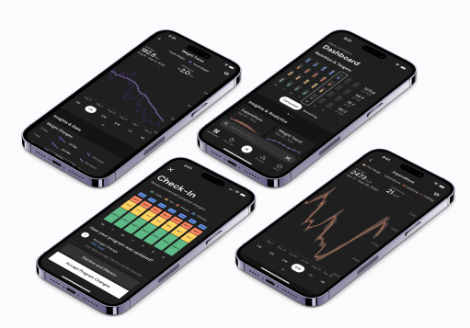
Product Highlights
- AI-powered nutrition coaching
- Fast, clean interface with barcode scanner
- Verified food database
- Tracks progress photos and measurements as well
- No free plan; premium-only starting at $11.99/month
Pros & Cons
Pros
- Energy expenditure algorithm
- Fast food database
- Barcode scanner
- Weekly AI-powered nutrition coaching
Cons
- No free plan available
- Can't share recipes with other users
Bottom Line
MacroFactor is a powerful nutrition app that records your food intake, macros, and daily bodyweight to calculate and track your daily energy expenditure. It includes free coached programs that will calculate and adjust your macros to keep you progressing toward your goals.
I’ve been using MacroFactor for just over a year. It’s one of the better calorie-tracking apps I’ve ever used, and easily earns a 5 out of 5 for features and resources.
It has two unique features that I really love. The first is the barcode scanner, which is extremely fast and easy to use. If you scan a barcode and it’s not in the food database, you can also scan the nutrition label and MacroFactor quickly imports all of the nutrition facts, allowing you to easily create a new food without having to manually enter the information.
MacroFactor also has a great algorithm for tracking your energy expenditure with its AI Coaching. As long as you record your daily body weight and food intake, honestly, the app will calculate your exact energy expenditure after a few weeks based on what you’ve been eating and any change in body weight.
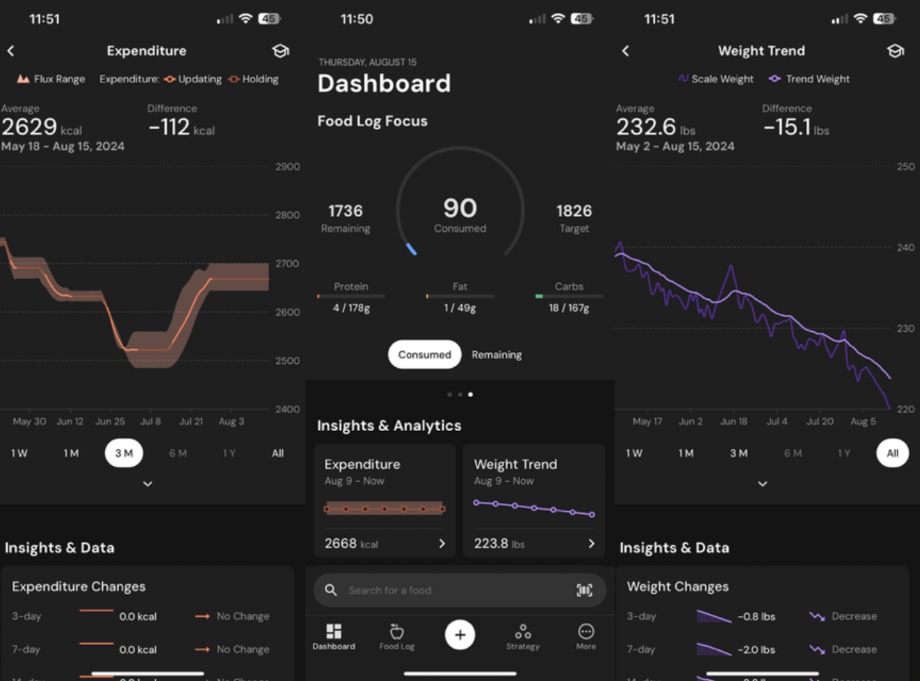
This is a great way to figure out how many calories you burn, as it’s calculated based on what’s happening in your body, rather than estimating your energy expenditure using your height, weight, and activity level.
Having this information allows the app to tell you exactly how much you need to eat to reach any goal, based on your current energy expenditure. You can also use a coached, collaborative, or custom program, where you set your health goals (weight loss, weight gain, or maintenance), and the app will monitor your progress and suggest changes to your macros to keep you on track.
It’s not the cheapest food tracker, but the interface, fast barcode scanning, and energy expenditure tracking with built-in coaching are well worth the cost.
| Cost | $11.99 per month or $71.99 per year |
| Free trial | 7 days |
| Features | Built-in nutrition coaching, energy expenditure tracking, barcode scanner |
| Available on | iOS, Android |
Best Calorie Counter App for Weight Loss: Fat Secret
Good for: People focused on weight loss
Best for Weight Loss
FatSecret

Product Highlights
- Calorie counting app for Android and Apple
- Free version allows calorie and food tracking with large database of food
- Premium version includes advanced meal planning and dietitian-created meal plans
- Large community with journals and articles
Pros & Cons
Pros
- Lots to offer in the free version
- Large database of food nutrition information
- Aren’t asked to upgrade often
Cons
- Foods’ nutrition information hasn’t come from a verified database
- Premium version doesn’t offer much on top of free version
Bottom Line
FatSecret is a calorie counting app available on both Apple and Android phones. It has a pretty robust free version that allows you to track calories and foods through a large food database. The premium version includes advanced meal planning as well as meal plans created by registered dietitians.
Fat Secret, as the name implies, is the best app for managing calorie intake for anyone currently focusing on weight loss goals. The interface is similar to many of the other apps on our list. You can access food journals, easily log your food, and track your calories and macros over time as you work toward your goal.
Other notable features in this free app include a barcode scanner, image recognition that allows you to track your food by taking a photo of it, an exercise diary, fitness tracker integration, and more.
Our tester, Kate Meier, NASM-CPT, USAW-L1, CF-L1, was very impressed by the meal plans provided in the premium version. These plans are perfect for those who wish to lose weight but are unsure of what to eat each day.
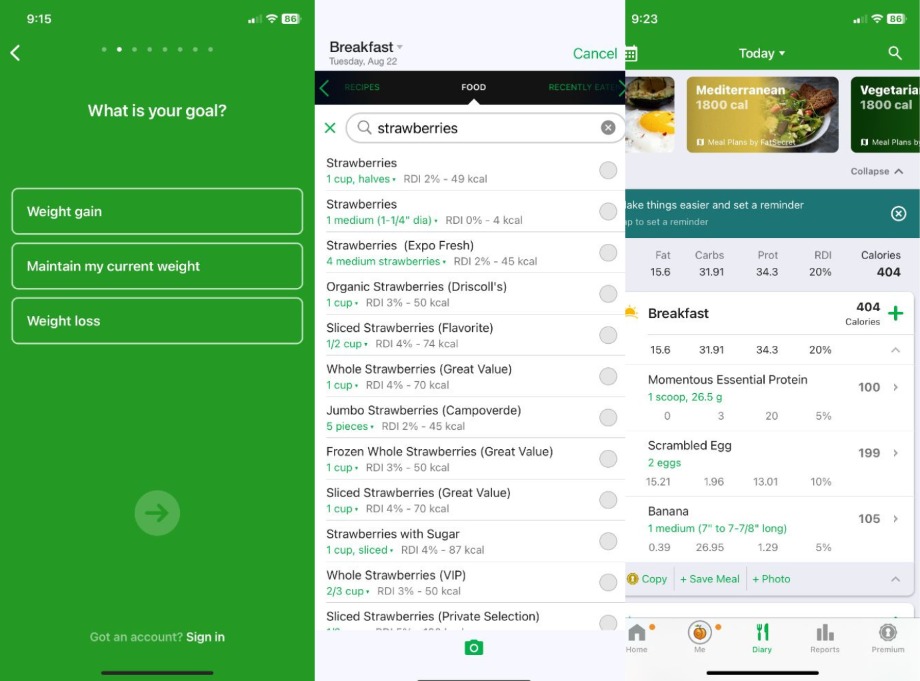
“I really like that this app offers customized meal plans like vegetarian, keto, Mediterranean, etc., all from an RD, and for a really low cost that starts at under $7/month,” Kate said. “If you subscribe to Premium, you can get a week of pre-planned meals and a shopping list. Not only that but the food is automatically entered into your diary, so all you have to do is make tweaks instead of entering everything.”
If you’re looking for an app to help you lose weight that tracks your food and can provide pre-made meal plans for you to follow, Fat Secret is a great option.
RELATED: Macros for Weight Loss
| Cost | Free; Premium plan is $6.49 per month with discounts available with 3-month or 12-month plans |
| Free trial | Yes |
| Features | Barcode scanner, image recognition, meal plans |
| Available on | iOS, Android |
Best Calorie Counter App for Muscle Gain: MyFitnessPal
Good for: Anyone looking to build muscle and strength
Best for Muscle Gain
MyFitnessPal

Product Highlights
- Nutrition and fitness tracking app
- Calorie and macro counter
- Syncs your data from popular fitness apps
- Vast database of nutrition labels and food
Pros & Cons
Pros
- Free and premium accounts available
- Find and track virtually any food
- Create and store your homemade recipes
- Track recipes from your favorite cooking websites
Cons
- Free version doesn’t allow barcode scanning
- Free version doesn’t feature Macro Goals
- Monthly subscription is costly
Bottom Line
MyFitnessPal is one of the OG calorie counting apps on the market. The free version is available for looking up food per item and creating recipes, but does not allow you access to the barcode scanner. The Premium version grants you access to macronutrient data, intermittent fasting, food comparison, and the barcode scanner. The Premium plan offers a significant price break if you sign up for the annual plan at $79.99 per year compared to the monthly plan, which is $19.99 per month.
MyFitnessPal is one of the most popular calorie counter apps on the market, if not the single most popular app. It has a clean interface, it’s extremely easy to use and beginner-friendly, and can track exercise, steps, and more.
The paid version also has all the features we’d expect to see in an app, including the ability to set your own custom macros, use the barcode scanner, track your body weight and progress over time, and more, but it does have two things we need to call out.
The first is the public food database. Anyone can add their own food entries, and there’s no way to tell if the one you’re choosing is correct. Some food entries will have a green checkmark to show it’s been verified with a food database, but it’s still confusing.
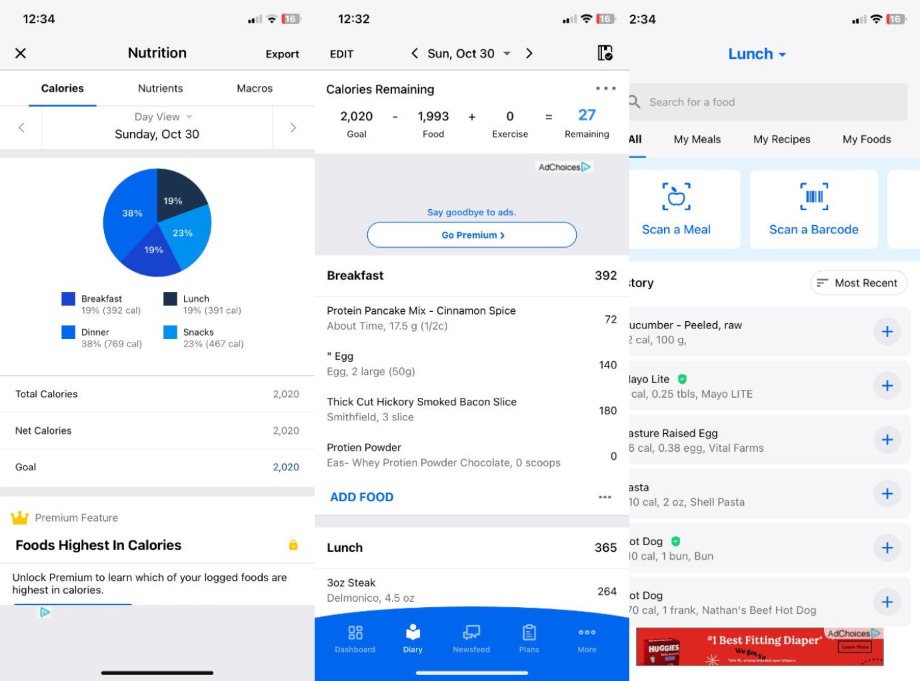
Kate Meier, NASM-CPT, USAW-L1, CF-L1, tested this app and quickly noticed this as well. She said, “The one issue is that users can add foods, and those will show up when you search, and you might have to dig to really figure out which one is the right one.”
The second thing is the premium plan, which isn’t cheap at $19.99 per month or $79.99 per year. While there is a free version, it’s quite limited and doesn’t allow you to use the barcode scanner or set your own macros.
If you’re willing to pay the membership fee, this app is still very easy to use with a clean interface and one of the most user-friendly calorie-counting apps we’ve tested.
Even though the database can be hard to verify, we felt this was a bigger issue when looking to lose weight as calories need to be more precise, so we still recommend MyFitnessPal for those currently working on intentional weight gain.
| Cost | Free, Premium costs $19.99 per month or $79.99 per year |
| Free trial | 1 month |
| Features | Macro tracking, barcode scanner, large food database |
| Available on | iOS, Android |
Best Calorie Counter App With Recipes: WeightWatchers
Good for: Those looking for food and meal planning ideas
Best for Recipes
WeightWatchers
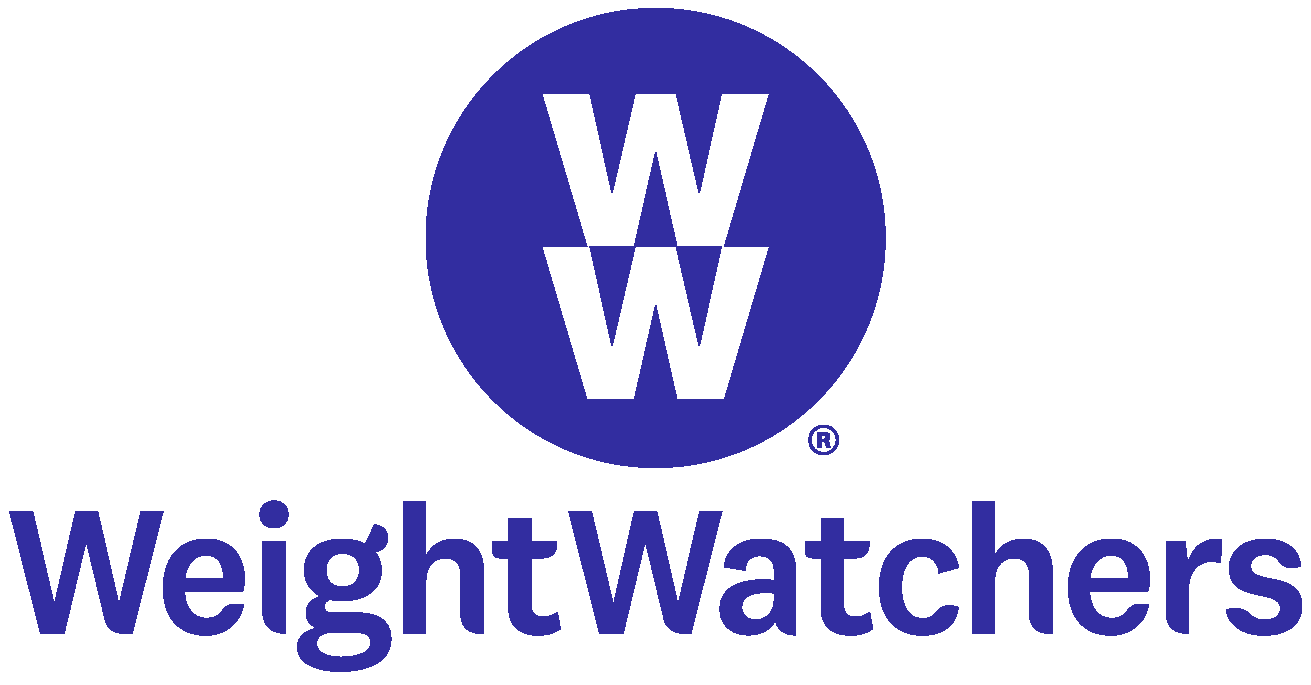
Product Highlights
- Designed specifically for weight loss
- Targeted quizzes to find the right plan for you
- Two membership options, starting at $23 per month
- Online-only or hybrid memberships available
- Works on a point budget system—no “off-limit” foods
- 24/7 support chat
Pros & Cons
Pros
- Point system allows you to tailor the plans to your preferences
- Online or hybrid options provide more flexibility
- Can choose a plan that works within your budget
- Includes an app for easier tracking
Cons
- Assigning Points to food is hard to translate to real-world eating when off the plan
- Tracking can be tedious
- Requires weekly weigh-ins, which can be problematic for some
Bottom Line
WeightWatchers is a flexible weight loss program that allows you to tailor your diet and lifestyle to your needs and preferences. There are two membership options: one for those who prefer in-person support, and one for those who are looking for an online program.
One of the biggest challenges people tend to face when attempting to improve their nutrition is figuring out what to eat. If you’re changing your normal eating habits, you’ll probably be eating different food, and constantly tracking down new recipes to avoid food boredom isn’t always easy.
Thankfully, the WeightWatchers app has features to support those on a weight loss journey, including thousands of recipes ready to log.
RELATED: Noom vs Weight Watchers
Now, this isn’t technically a calorie-counting app, but rather an app that uses WeightWatchers’ point-tracking system. Rather than tracking the number of calories in a given food, users are assigned a daily points goal, and each food, meal, or recipe is worth a certain number of points.
All you need to do is avoid going over your daily point goal, which may be easier for some than tracking macros or calories.
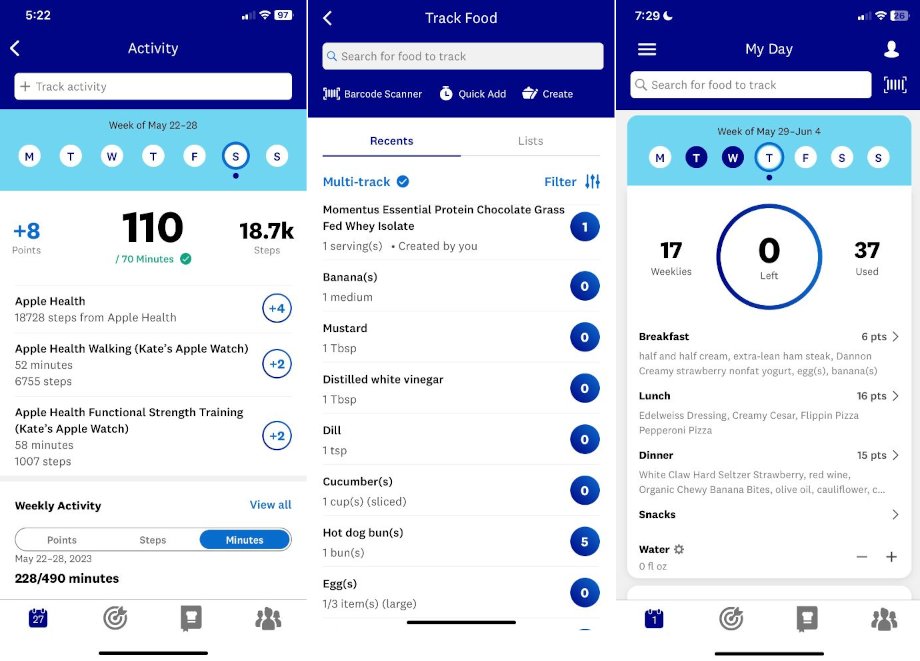
Our tester, Kate Meier, NASM-CPT, USAW-L1, CF-L1, was very impressed by the large recipe database, along with several other key features, giving a 5-out-of-5-star rating to both the features and community scores.
“There are more than 11,000 recipes, and you can track all kinds of activities. It syncs with Apple Health and other platforms as well, so you don’t have to manually input exercise,” Kate said. “There’s also a huge community on social, in the app, and just with the millions of people who have used it.”
If you like the idea of tracking points instead of calories or macros, and want to try an app that includes over 11,000 recipes for you to try, WeightWatchers is a great app to consider.
For more, check out our complete Weight Watchers review.
| Cost | $23 per month, discounts available with 6-month or 12-month plan |
| Free trial | No |
| Features | Track points instead of calories, thousands of recipes, supportive community |
| Available on | iOS, Android |
Best Calorie Counter App for Intermittent Fasting: Lifesum
Good for: Those who want to track fasting and feeding windows
Best for Intermittent Fasting
Lifesum App

Product Highlights
- Diet and food tracker app
- Free tracking app with premium subscription plan for meal plans and more
- Weekly life score with premium for a snapshot of how you’re doing
- Available on Android and iOS
Pros & Cons
Pros
- Multiple meal plans for different goals: Lose weight, gain weight, and maintain weight
- Customers found app intuitive and easy to use
- Meal plans comes with shopping list
Cons
- No monthly subscription options
- No personalized coaching
- No free trial for premium version
- Limited features on the free version
- Mixed reviews on accuracy of barcode scanner
Bottom Line
The Lifesum app is a food tracking app with free and premium versions. The free version has extremely limited features, essentially just tracking food, exercise, water, and weight. The premium version provides meal plans and daily and weekly scores so users can track their progress. Customers generally found the app easy to use and intuitive. They were frustrated there was no free trial available for the premium subscription.
Intermittent fasting, the practice of intentionally going without food for long periods of time, is a popular dieting approach that many embrace in their efforts to maintain a healthy body weight.
While you can technically use any app to track your food while fasting, Lifesum makes this an easy process. You can choose different fasting styles, and the app will automatically adjust your macros to account for the fast. It also includes a fasting timer to keep track of how long you’ve gone without food and show when you’ve entered ketosis, which is when your body starts burning fat for energy.
I tested Lifesum myself, and along with the fasting features, I like the app’s emphasis on food education and food quality. You can take a life test, which asks a variety of questions about how often you ate specific foods in the past week, such as various fruits and vegetables, and assigns a score based on how balanced your diet is. There are also plenty of meal plans and recipes to help you with easy food ideas, and you can track your exercise and water intake.
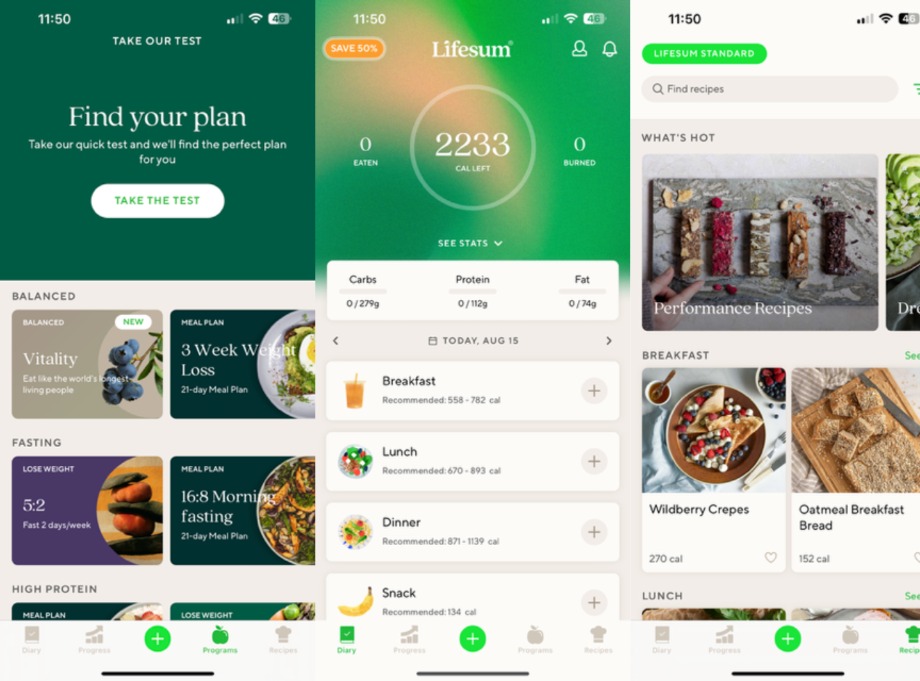
My biggest issue is that the app’s free version is cluttered with annoying pop-up ads. It’s great to have a free version for users, but when key areas of the screen are covered, or you can’t view the screen without viewing an ad first, I want to close the app immediately.
The paid version is a beautiful, simple app, and I’d love to give it a 5 out of 5 for ease of use and functionality, but with how messy the free plan is, I have to bring this down to a 3 out of 5.
If you’re willing to pay for an app, I think Lifesum is a great option for tracking calories and macros, especially if you practice intermittent fasting. However, if you plan on using the free version, I would try any other app on this list that doesn’t rely on so many ads.
| Cost | Free plan; paid ranges from $8.33-$14.99 per month |
| Free trial | Discounted 1-month trial available for $7.49 |
| Features | Fasting time, nutrition education, meal plans and recipes |
| Available on | iOS, Android |
Best Calorie Counter App for Keto: Carb Manager
Good for: Individuals following the keto diet
Best for Keto
Carb Manager

Product Highlights
- Diet tracker app specializing in low-carb, keto, and paleo diets
- Features calculator for macros, calories, and net carbs
- Nutrition info of over one million foods
- Unlimited barcode scans
- Measure and log exercise, weight loss, and BMI
- Premium version includes micronutrient tracker, diabetes tracker, and advanced reports
- Premium version billed annually
Pros & Cons
Pros
- Integrates with FitBit, Garmin, and other fitness trackers
- Lots of included foods, articles, and recipes in free version
- Macronutrient goals can be adjusted beyond just keto
Cons
- Only annual billing option
- No refunds after 7 days
Bottom Line
Carb Manager is a food tracking app geared towards low-carb and keto diets, although you can set your macronutrient goals to your preference. It allows you to track macros, as well as chart weight loss progress and scan in nutrition information through a barcode. The premium option is billed annually, and includes tracking of micronutrients, blood glucose, and access to more recipes.
Carb Manager is a great calorie-counter app to try if you’re following the keto diet or simply want to reduce your carbohydrate intake.
While it tracks all of your macros, the emphasis is on tracking carbohydrates, which is the most important thing to watch for anyone on the keto diet. The app uses net carbs, which subtracts fiber from the total carb intake, a strategy often followed by those on carb-restricted plans.
GGR Senior Staff Writer Caine Wilkes, OLY, USAW-1, tried this app, and while he was impressed with the features, he noted that several weren’t obvious right away.
“The app is pretty easy to use, although there is a lot to navigate,” said Caine. “Premium features are clearly marked, and you’re prompted to purchase premium if you try a feature. It’d probably take a bit of fiddling to learn about all the features, like tracking workouts to estimate calories burned.”
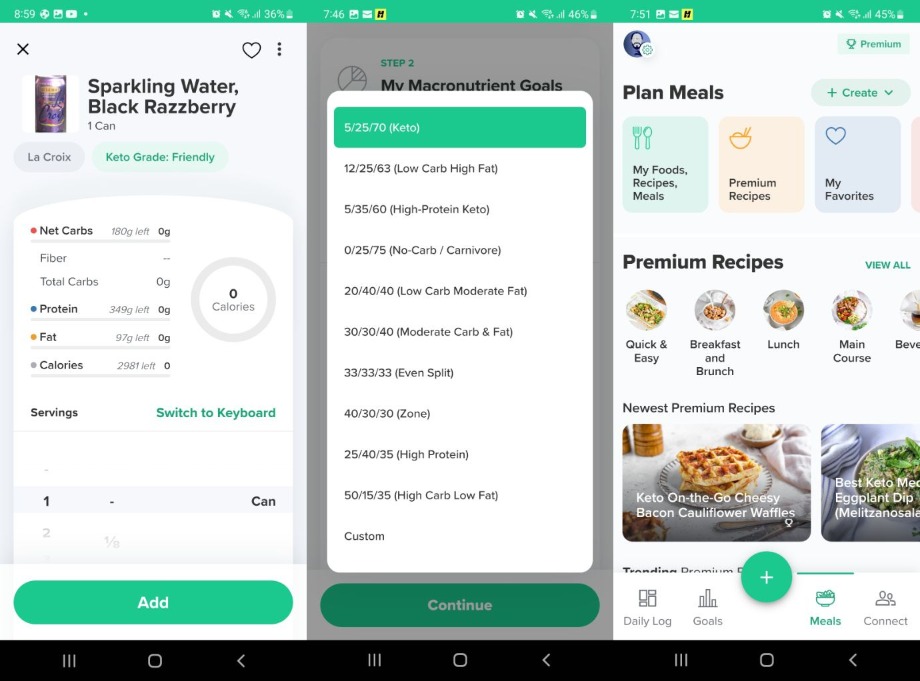
Carb Manager can suggest a meal plan, track various types of intermittent fasting, and include an easy-to-use barcode scanner. It also offers thousands of low-carb, keto-friendly recipes to try, and educational content for those new to the keto diet.
The free version is somewhat limited, so most users will want the paid plan. The monthly plan costs $8.49, though you can purchase a quarterly or annual plan to bring down the cost.
If you love the keto diet or want to learn more about it and try it out, Carb Manager is the app to try.
| Cost | Free; Premium ranges from $3.33-$8.49 per month |
| Free trial | No |
| Features | Net carb tracker, barcode scanner, low-carb recipes |
| Available on | iOS, Android |
Other Calorie Counter Apps We Researched
There are plenty of calorie counter apps to choose from, but we simply couldn’t include them all. Here are a few that came close, but didn’t quite make the cut.
- Noom: We like Noom as a weight loss program, but it focuses more on food psychology and behavior and pairs you with an accountability coach. This is more than someone who simply wants a calorie counter will need.
- Healthi App: Healthi offers weight loss plans and allows users to track calories and macros, but it received a lower score based on our testing methodology than the other apps on our list.
- Foodvisor: The app is very easy to use, but our tester found that the food database wasn’t always accurate, and the option to log food by taking a photo didn’t work well.
How We Picked and Tested the Best Calorie Counter Apps
We didn’t just choose these apps off a list, we carefully used and tested each.
Here are a few of the most important factors we look for when evaluating a nutrition app, which we used to assign scores and determine the top eight apps.
Ease of Use
Is this app easy to use, or do you need to watch tutorials to figure it out? Most people want something simple and easy to use without too much of a learning curve, so we prioritized apps that are very intuitive and easy.
Some of the apps we chose may have more advanced tracking features available, but each should be quick to set up if you’re simply looking to record your food intake.
Progress Tracking
If you’re counting your calories, you’re probably working toward some kind of body composition goal. While all of these apps can record your food, we wanted to include apps that allow you to track all sorts of progress, including measurements, scale weight, progress photos, and more, allowing you to record most of your health and fitness data in one place.
Food Database Accuracy
Finally, an accurate nutrition database is tremendously helpful, especially for those new to nutrition and calorie counting.
While an app like MyFitnessPal is user-friendly in almost every single way, the food database includes custom user entries, which means you may be combing through dozens of entries for the same food if there’s no verified option. On the other hand, paid apps like MacroFactor may not be free, but the verified food database can save you plenty of time when logging your calories.
Benefits of the Best Calorie Counter Apps
Logging everything you eat on a phone app may seem inconvenient, but apps can be a useful tool to help you reach your calorie goals. Here are a few of the biggest reasons you may want to consider using a nutrition app.
I’ve worked with hundreds of clients over the years who’ve benefited from using these apps, and to get another opinion, I also spoke with Destini Moody, RD, CSSD, LD, the head of performance nutrition for the NBA G League Ignite, to see what she thinks of these apps.
Improved Food Awareness
Even if you aren’t focused on any particular weight goal, tracking your food is a great way to build food awareness and make good dietary choices. It’s no secret that the average American diet isn’t always the healthiest, so tracking your food, even for a short period of time, can be a good way to clean things up.
In my first college nutrition course, we were required to keep a food log for two weeks, which was my first experience tracking everything I ate. This eye-opening experience helped me make a few major changes to improve my overall nutrition intake.
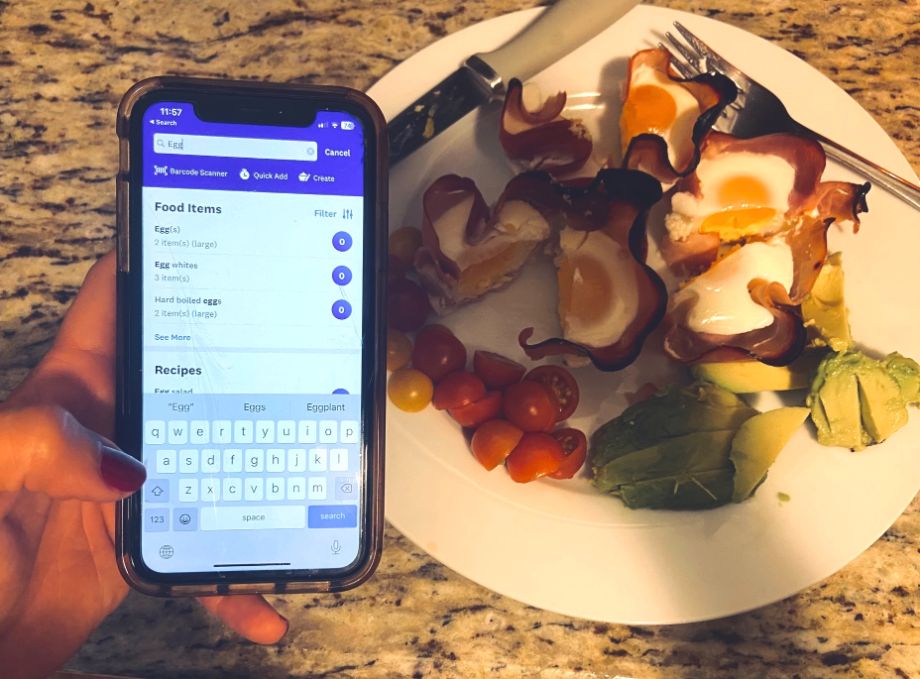
Destini had a similar experience, saying, “Tracking food can be an educational tool in that it can open people’s eyes to the true macro and calorie content of their food. When I was on a cut in grad school and using MyFitnessPal (my personal favorite tracking app) to help me track my protein and fat intake, even as a nutrition student I was shocked at how many grams of fat were contained in a cup of oats, and quickly discovered that this food alone was probably hindering my fat loss.”
Just like tracking your spending can help you accurately assess your financial situation and set a budget, being honest and looking at food logs is a good way to quantify your eating and ensure it’s aligned with your goals.
RELATED: What Should My Macros Be?
Easier Time Reaching Your Goals
For those trying to lose weight, a calorie deficit is key, and tracking your food helps ensure you’re staying in a deficit and reaching your goals as quickly as possible. There’s nothing worse than putting in the mental effort of dieting, only to see no results because you’re still eating too much food.
Whether you’re focused on weight management, athletic performance, or muscle gain, proper nutrition is one of the most important factors.
Destini offered her own insight on the topic as a sports dietitian who regularly works with athletes who need precision and accuracy to reach their goals as quickly as possible.
“As a sports dietitian, I’m intimately familiar with how tight control of your calories and macros can make or break body composition changes,” Destini said. “Even the smallest inconsistencies in your diet can significantly slow fat loss or muscle gain progress. That’s why I recommend that anyone with the time use a food tracking app to track their intake when possible.”
If your goal is weight loss, tracking your food may be the best way to see results. This 2017 study1 looked at participants in a 12-month weight management program, comparing those who rarely tracked, inconsistently tracked over the year, or consistently tracked food for the entire 12 months. Only the group that consistently tracked their food lost significant weight.
Improved Nutritional Balance
If you’re not logging your food intake, knowing exactly how many nutrients you’re consuming is impossible. While most of us don’t have to worry about major nutrient deficiencies if we’re including whole foods in our diets, certain diets can sometimes be restrictive.
For example, removing an entire food group can lead to very low intakes of important nutrients like fiber or healthy fats. That’s why many calorie-counting apps can alert you if your diet seems to be missing any key food groups, vitamins, or minerals, helping make sure you’re not missing anything important.
What to Look for in a Calorie Counter App
If you’re having trouble choosing a calorie counter from our list, here are a few of the most important factors to consider.
Cost
While many of the best calorie counter apps have a monthly fee, there are certainly free versions available, though certain features are often locked without a premium subscription.
That said, the monthly cost can vary greatly, and there’s often a discount if you pay for a year in full. We suggest trying a few apps to see which you like the most, and which you’re most likely to stick with, and purchasing a year upfront to get the best savings.
Barcode Scanner
For those who have never tried a calorie counting app with a barcode scanner, the scanner allows you to import the nutrition information of most commercial foods by simply scanning the barcode.
This will typically bring up the nutrition information, and you can simply enter the serving size you consumed to log your food. Compared to manually entering all of the information, a barcode scanner can save you significant amounts of time, especially if you’re entering food throughout the day.
Custom Macros
While many simply want to track their calories, some users may have macronutrient goals they’re aiming for. If you want to track your macros and customize your macro targets, make sure the app you’re choosing allows you to do so.
Every app on our list allows you to do this, but some apps only allow premium members to change their macro targets. If you’re going to be using a free app, you’ll want to make sure this feature is available if custom macros are important for your goals.
Automatic Diet Adjustments
Counting calories is usually associated with a specific body composition goal, such as losing body fat, increasing lean muscle mass, or both. Most apps will calculate a basic target based on your body stats, but they may or may not adjust the macros for you along the way.
Some apps on our list, like MacroFactor, allow you to set your goal weight. The app will automatically adjust your macro targets to keep you on track as you progress toward your goal. This is a powerful tool for anyone uncomfortable adjusting their nutrition plan and not ready to hire a nutritionist or registered dietitian.
Best Calorie Counter Apps: FAQs
Is it bad to use a calorie-counting app?
While calorie counter apps can be very useful, Destini Moody, RD, CSSD, LD, cautions that those with eating disorders should be careful.
“The one thing I will say is that I do not recommend food tracking apps for people with an active or a history of eating disorders,” Destini said. “Those with these disorders tend to have a dysfunctional relationship with food and the weighing, measuring, and data-driven nature of food tracking apps exponentially increase the chances of one becoming obsessive over their food intake. These behaviors can exacerbate an eating disorder or cause a relapse in those with a history of one.”
This is supported by research, as this study2 showed that dietary tracking may become “harmful if the behavior becomes obsessive or if the user has poor body image.”
What is the most accurate calorie-counting app?
Many apps use verified food databases only and don’t allow users to upload foods to the public database. This includes apps such as Cronometer and MacroFactor. If you’re using an app with a public food database, be sure to carefully check each entry for accuracy before recording the food.
Is there a free calorie-counting app?
Most of the calorie tracking apps will have both free and premium plans, and you’ll often find that the best features are locked in the premium version. If you’re looking for an app that includes most features for free, including basic calorie counting, we recommend Lose It!.
Can I use a calorie-counting app with a smartwatch?
While most apps require you to use your phone to find and record food, most apps will sync with fitness devices such as FitBits, Apple Watches, Garmins, and more, using them to monitor your activity levels and record your exercise. Many apps can also sync with Apple Health or Google Fit.
These statements have not been evaluated by the Food and Drug Administration. This product is not intended to diagnose, treat, cure, or prevent any diseases.
References
- Ingels, J. S., Misra, R., Stewart, J., Lucke-Wold, B., & Shawley-Brzoska, S. (2017). The Effect of Adherence to Dietary Tracking on Weight Loss: Using HLM to Model Weight Loss over Time. Journal of diabetes research, 2017, 6951495. https://doi.org/10.1155/2017/6951495
- Hahn, S. L., Linxwiler, A. N., Huynh, T., Rose, K. L., Bauer, K. W., & Sonneville, K. R. (2021). Impacts of dietary self-monitoring via MyFitnessPal to undergraduate women: A qualitative study. Body image, 39, 221–226. https://doi.org/10.1016/j.bodyim.2021.08.010
Further reading

Looking for a new EAA supplement? Check out our Transparent Labs Intra Review to see if this is the right product for you! Read more

We’ve searched through hundreds of supplements to give you the best BCAA for men that money can buy. Read more

We considered various features like rope adjustment, handle shape and overall performance to come up with this shortlist of the best weighted jump ropes. Read more

These 6 exercises will give you an effective upper body workout at home. Read more

